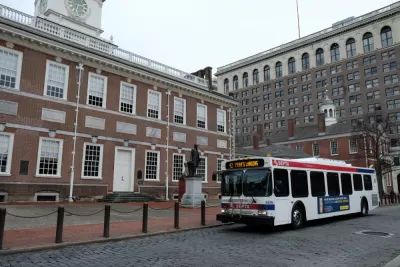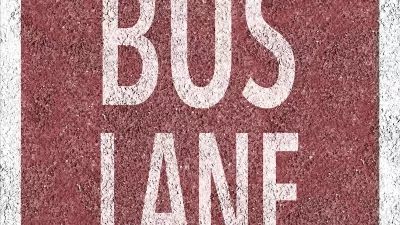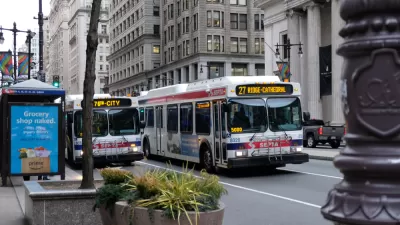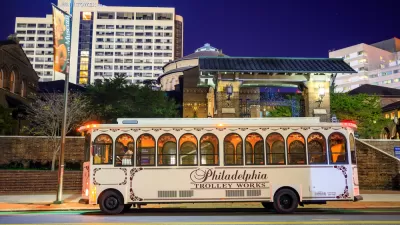Philadelphia’s transit agency faces some structural challenges as it struggles to reorganize its services and bring back ridership.

At a hearing on Monday, Philadelphia’s city council will discuss the proposed changes to Southeastern Pennsylvania Transportation Authority’s (SEPTA) bus routes, which manages public transit in the city and beyond. Matt Sullivan reports on the story for the Philadelphia Inquirer.
According to Sullivan, “Much of what is possible is going to depend on developing and funding bold plans to increase SEPTA’s ridership, and that means pressing for improvements systemwide.” Beyond bus route adjustments, “it’s crucial that agency management reexamine its professional standards for outside contractors, become a better partner with its own workforce, and firm up its shaky commitment to transit equity.” Sullivan describes the agency’s troubled partnership with its Key Card contractor, as well as its history of labor disputes. “Just as the agency should be pressed to do better by riders, it should be pressed to do better by its workforce,” Sullivan writes.
Additionally, “SEPTA management must commit itself fully to transit equity, ensuring all communities have access to great public transport that gets them where they need to go.” Sullivan suggests starting with an end to transfer fees, which impact low-income riders the most. “It’s no mystery which transit riders live in West Philly, North Philly, and along Kensington Avenue, and the Pew study makes it clear that the fare structure amounts to de facto discrimination.”
FULL STORY: SEPTA’s issues go deeper than Bus Revolution

Study: Maui’s Plan to Convert Vacation Rentals to Long-Term Housing Could Cause Nearly $1 Billion Economic Loss
The plan would reduce visitor accommodation by 25,% resulting in 1,900 jobs lost.

Alabama: Trump Terminates Settlements for Black Communities Harmed By Raw Sewage
Trump deemed the landmark civil rights agreement “illegal DEI and environmental justice policy.”

Why Should We Subsidize Public Transportation?
Many public transit agencies face financial stress due to rising costs, declining fare revenue, and declining subsidies. Transit advocates must provide a strong business case for increasing public transit funding.

Paris Bike Boom Leads to Steep Drop in Air Pollution
The French city’s air quality has improved dramatically in the past 20 years, coinciding with a growth in cycling.

Why Housing Costs More to Build in California Than in Texas
Hard costs like labor and materials combined with ‘soft’ costs such as permitting make building in the San Francisco Bay Area almost three times as costly as in Texas cities.

San Diego County Sees a Rise in Urban Coyotes
San Diego County experiences a rise in urban coyotes, as sightings become prevalent throughout its urban neighbourhoods and surrounding areas.
Urban Design for Planners 1: Software Tools
This six-course series explores essential urban design concepts using open source software and equips planners with the tools they need to participate fully in the urban design process.
Planning for Universal Design
Learn the tools for implementing Universal Design in planning regulations.
Smith Gee Studio
Alamo Area Metropolitan Planning Organization
City of Santa Clarita
Institute for Housing and Urban Development Studies (IHS)
City of Grandview
Harvard GSD Executive Education
Toledo-Lucas County Plan Commissions
Salt Lake City
NYU Wagner Graduate School of Public Service





























